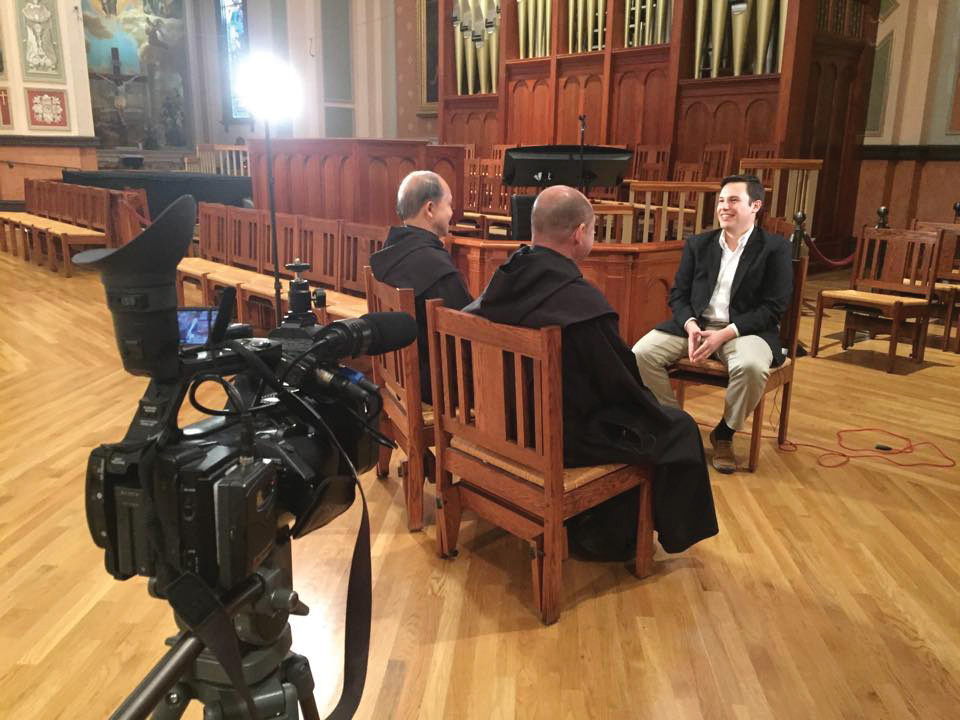
Giacomo Luca reporting for Sacramento’s ABC News10.
It is a longstanding Italian custom to name your children after their grandparents. The tradition is a tremendous honor. It is also a way for a person’s memory to live on through another, even after death.
My family has carried on that tradition, as I was named after my grandfather. He first comes to mind as I ponder the idea of the American Dream, which it seems to me has changed since my grandfather came to this country more than 60 years ago.
My grandfather was born in 1939 in the small town of Fuscaldo in poverty-stricken Southern Italy. He immigrated to America when he was 18 years of age, became an American citizen, married and had a family. He spent 17 years as a tailor and another 27 years working in a tool-and-die shop until a heart attack forced him to retire in 2006.
Growing up, I had always known the American Dream to be the idea that every American has an equal opportunity to work hard, which would result in a fulfilling life with one’s own home, family and guaranteed retirement.
However, because of rising college costs and changing expectations in today’s job market, I believe that version of the American Dream is not as easy to achieve as it was for my grandfather.
Married 50 years, he and my grandmother are comfortably retired in a quiet neighborhood on the west side of Cincinnati where they live in the same quaint ranch house where my father and his siblings were raised, and where I spent most of my childhood.
By the time I am their age, maybe even a little sooner, I hope to be in the financial position to do the same. However, I believe there are obstacles that could get in the way of millennials like myself achieving that version of the American Dream.
My parents had me in their early 20s, and divorced not long after. My dad is a tool-and-die maker, my mother a housemaid. They didn’t graduate from college. Theirs was a generation in which a high school education frequently was enough for employment.
I was privileged to have been educated in a quality public school system that prepared me for college. In 2014, I became the first person in my family to earn a bachelor’s degree from Roosevelt University. Words cannot describe what this accomplishment has meant to my parents, grandparents and myself.
Over the past six years, I have moved three times and thousands of miles from home in order to pursue a career in TV journalism. Like many millennials, I am content to make these sacrifices as long as I am working in a career that personally fulfills me. To me, this is the new American Dream.
While I admit that I didn’t have everything growing up, I had what I needed. I was fortunate and blessed to be raised by hard-working parents and grandparents whose strong work ethic so influenced me. They taught me if I worked hard I could achieve anything I wanted, and I believed them.
Unfortunately, nearly half of 18 to 29-year-olds don’t believe the American Dream is alive for them, according to a 2015 survey by Harvard University’s Institute of Politics.

Giacomo Luca reporting for Sacramento’s ABC News10
I don’t think the basic idea of the American Dream — working hard and being fulfilled — has dramatically changed for today’s young people. However, the expectations and obstacles they face in order to achieve the dream have shifted considerably.
Long gone is the idea of any job being the ticket to a comfortable life in a quiet neighborhood. In today’s job market, some form of college degree is expected. Thus, more people are going to college and more money is spent on a college education.
My degree cost six times the salary I earned in my first TV job, but realistically, I had to obtain a college degree if I wanted to land a job in the field. Thus, I have joined approximately 44 million others, who, along with aspirations of bettering their futures, collectively have more than $1.3 trillion in student loan debt.
Millennials earn a median household income of $40,581, which is less than the average U.S. household income of $56,516, and 20 percent less than baby boomers took home at the same stage of life as today’s millennials, according to a variety of federal data.
Traditions, like carrying on the family name, may live on, but the truth is that priorities have shifted since my grandfather’s day when working meant retiring to a home in that quiet neighborhood.
“Traditions, like carrying on the family name, may live on, but the truth is that priorities have shifted since my grandfather’s day when working meant retiring to a home in that quiet neighborhood.”
– Giacomo A. Luca (BA, ’14)
For millennials like myself, today’s American Dream is more about achieving peace of mind. We need a job to pay for student loans and living expenses, and can only hope that benefits like healthcare and retirement come along with that job.
I see the American Dream as being more about being fulfilled by work itself than it is for the work to be a means to one day enjoy fulfillment. It’s not that we millennials don’t want a house, family and retirement in a quiet neighborhood. For many of us, however, that part of the American Dream will have to come much later.
To register for the 2017 American Dream Conference, visit www.americandream.com/register.

